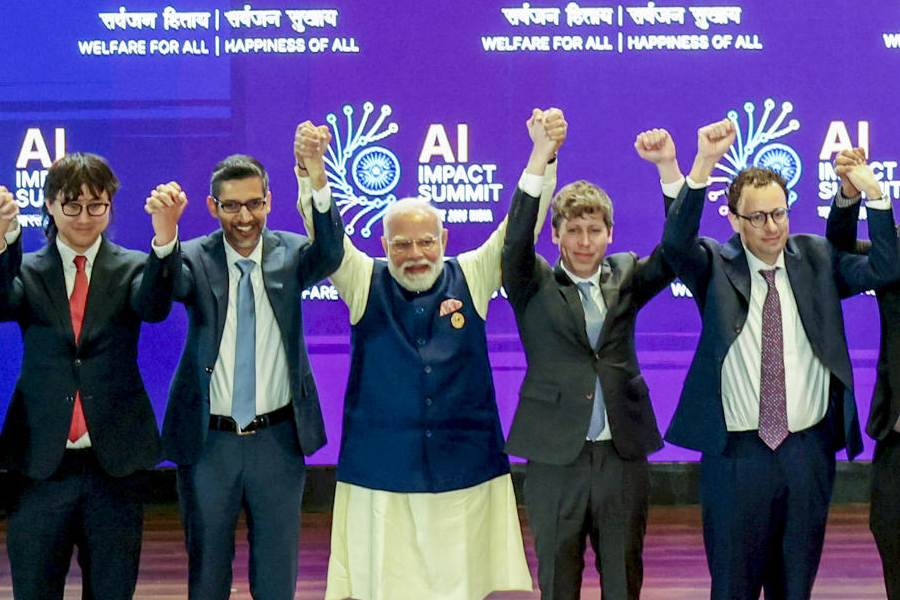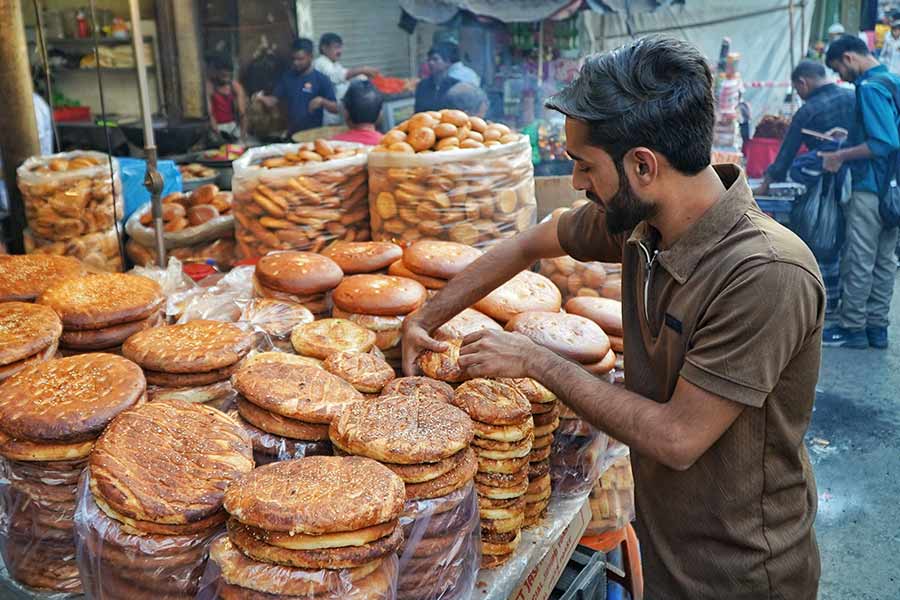 Saturday, 21 February 2026
Saturday, 21 February 2026
 Saturday, 21 February 2026
Saturday, 21 February 2026
A research paper published in August this year indicates there could be over 1 crore excess voters in the electoral rolls in West Bengal.
The study, titled ‘Demographic Reconstruction of Legitimate Voter Counts: Study from Electoral Roll Inflation in the Indian State of West Bengal,’ estimates the voter list in Bengal is inflated by at least 13.69 per cent, with 1.04 crore excess voters.
The authors of the study are Vidhu Shekhar, assistant professor, Finance and Accounting, SP Jain Institute of Management & Research (SPJIMR), and Milan Kumar, assistant professor, Production and Operations Management, IIM-Visakhapatnam.
The figure quoted in the academic paper tallies with what the Bengal BJP leaders have been shouting from rooftops: That over a crore voters will be deleted on completion of the Election Commission of India’s special intensive revision (SIR) of electoral rolls underway in the state.
The researchers estimate that around 3.74 crore voters from the 4.74 crore voters in 2004 (the first election after the SIR was carried out in Bengal) would have survived, while 3.01 crore new voters would have been added in the 20 years between 2004 and 2024.
“Using Census 2001 and 2011 data and extrapolating via the compound annual growth rate (CAGR), we estimate net permanent outmigration from West Bengal to be 17.86 lakh individuals during this period,” the paper says.
“We assume that 92.8 per cent of eligible adults are registered to vote in 2024. This is higher than historical registration levels in 2004 (91.3 per cent) and 2011 (91.8 per cent) and is meant to conservatively inflate the estimated legitimate voter count,” say the authors.
The projected number of registered voters based on the above calculations comes to around 6, 57,06,849. The official electoral roll in Bengal for the 2024 Lok Sabha elections had 7,61,24,780 voters.
This excess is what the researchers have flagged.
Retired bureaucrat and former Rajya Sabha MP Jawhar Sircar, who had served as chief electoral officer of Bengal, strongly believes the number of “excess voters” in Bengal could be as high as 1.8 crore.
“If we take the population growth of Bengal in these 20 years, the increase in the number of electors cannot be more than 6 crore. The present total voters of 7.62 crore voters is suspect,” Sircar tells The Telegraph Online.
Errors in the voters list are generally attributed to two factors: inclusion errors (dead voters, duplicate voters) and exclusion errors (omission of eligible citizens).
Bengal chief minister Mamata Banerjee has warned of consequences if even one genuine voter’s name is excluded from the rolls after the completion of the SIR. The BJP says the chief minister’s mandate will vanish when the excess voters are weeded out.
“There is a genuine problem,” says a Calcutta-based political scientist. “One side talks of exclusion, the other side talks of inclusion. Which one should be prioritised?”
Quoting the study that has flagged the excess voters, economist and BJP lawmaker from Balurghat Ashok Lahiri says, “In view of what experts are suggesting, inclusion error is much higher than exclusion error. Both errors are undesirable. It has to be decided which is more dangerous for Bengal, inclusion or exclusion error. The objective should be to minimise the error which is more dangerous for the state.”
On the basis of a sample survey carried out in one constituency, Jadavpur, the CPM too estimates the number of fake voters in the existing voters list could be around 1 crore.
Economist and Bengal Congress leader Prasenjit Bose does not concur with the findings.
“The methodology is based on certain assumptions and projections which may not correspond with the ground realities,” Bose says.
Bose cites the example of Bihar, the first state where the SIR exercise was held.
“In Bihar, 22.26 lakh deceased electors were detected out of 7.89 crore entries in the initial draft roll, less than 3 per cent. Gross deletion in Bihar in the enumeration phase was 65 lakh, which was around 8 per cent of total electors. West Bengal has 7.66 crore voters at the beginning of the SIR. The deletion [of voters in Bengal] is unlikely to be higher than Bihar.”
Political analyst Subhamay Maitra says for the voters list to be 100 per cent error-free all the political parties need to be on the same page.
“The SIR is being conducted in Bengal in an adversarial manner. A correct, error-free voters’ list is the basis of electoral democracy. A citizen may not be interested in voting, but a non-citizen cannot be a voter. The Election Commission should have been better prepared to conduct the SIR in Bengal given the adversarial environment,” Maitra says.
State minister and Trinamool leader Aroop Biswas, who deals with election related matters for the party, did not respond to The Telegraph Online’s calls for comment.







